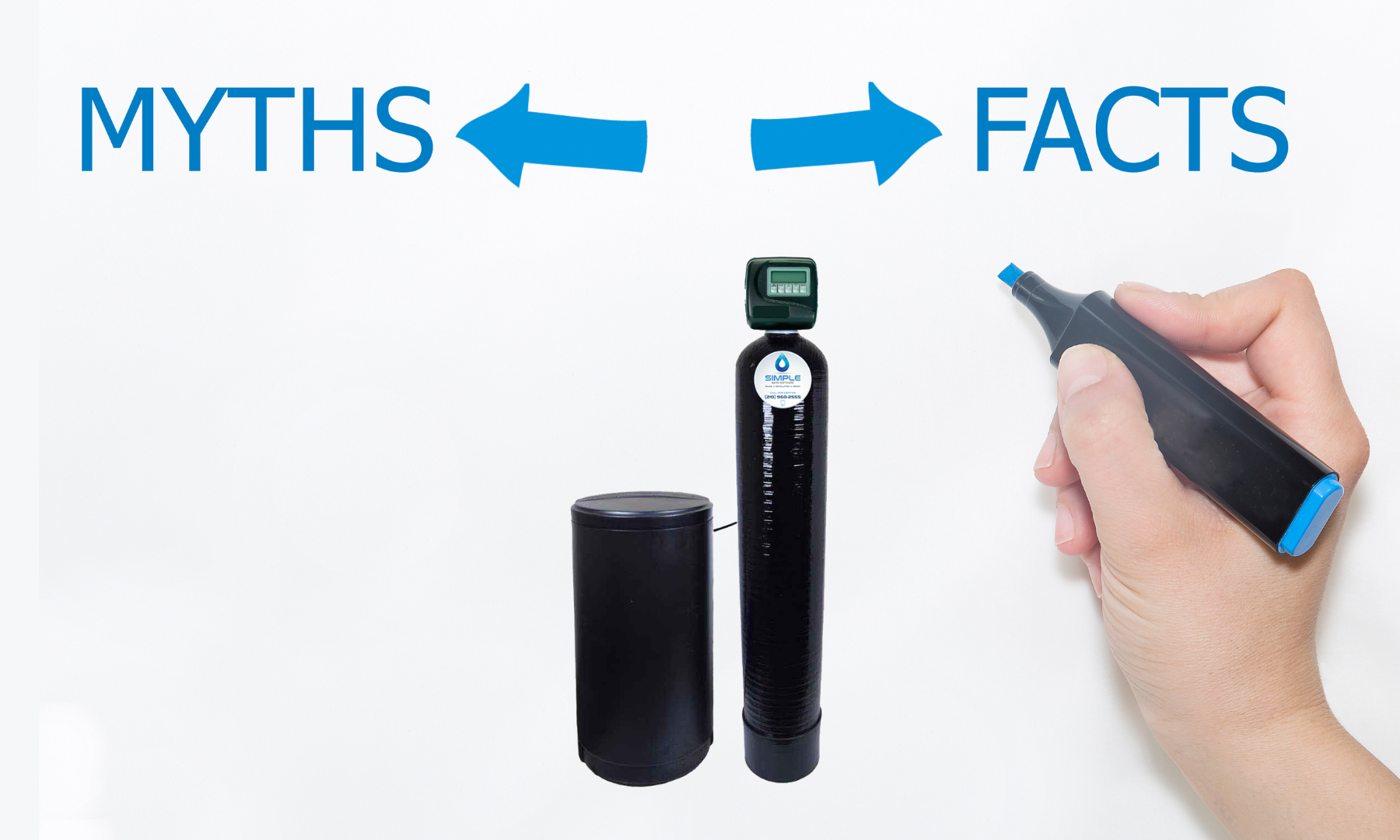
08 Nov. 24
Common Myths About Water Softeners: What San Antonio Homeowners Should Know This Fall
Water softeners play a crucial role in combating the hard water issues that are common in San Antonio. However, there are many myths and misconceptions surrounding these systems, which can lead homeowners to misunderstand their benefits or hesitate to invest in one. This fall, let’s debunk some of the most common myths about water softeners and set the record straight for San Antonio homeowners.
Myth 1: “Water Softeners Make Your Water Salty”
One of the most widespread myths is that water softeners add salt to your drinking water, making it taste salty. In reality, water softeners don’t add salt to the water supply. Instead, they use a process called ion exchange, where sodium ions replace the hard minerals like calcium and magnesium. The amount of sodium introduced into the water is minimal and generally imperceptible.
- The Truth: Your softened water won’t taste salty. The small amount of sodium added is usually far below the threshold for a noticeable taste.
Myth 2: “Soft Water Is Bad for Your Health”
Some people believe that soft water, because of the small sodium content, could be harmful to your health. This is particularly concerning for individuals on low-sodium diets. However, the sodium levels added by water softeners are extremely low. In fact, an 8-ounce glass of softened water contains less sodium than a slice of bread.
- The Truth: For most people, the amount of sodium added to softened water poses no health risk. If sodium intake is a concern, you can opt to use potassium-to regenerate. Water softeners work off potassium or salt. You can also install a reverse osmosis system for drinking water and remove 97% of the sodium. We advise talk to your doctor for your health concerns.
Myth 3: “Water Softeners Waste Water”
Some homeowners worry that water softeners use too much water during the regeneration process. While older models may have been less efficient, modern water softeners are designed to minimize water usage. Additionally, newer systems can be programmed to regenerate only when necessary, making them far more eco-friendly than their predecessors.
- The Truth: Today’s water softeners are highly efficient and use minimal water. Plus, by preventing scale buildup in your pipes and appliances, they can help reduce overall water and energy usage in your home.
Myth 4: “Softened Water Damages Your Plants”
There’s a common belief that softened water, because it contains sodium, is harmful to plants. While it’s true that sodium can affect plant growth, the amount present in softened water is usually not enough to cause any damage to hardier plants. Delicate plants like orchids and African violets use water from outside or a reverse osmosis. That said, for outdoor irrigation the hose bibs should be plumbed hard water.
- The Truth: Softened water is safe for most indoor plants. You can get a soft water hose bib or even a hard water bib installed in the garage. Or you can use potassium to regenerate your water softener if you are a plant enthusiast.
Myth 5: “Water Softeners Are Expensive to Maintain”
Many homeowners assume that the cost of maintaining a water softener outweighs the benefits. However, regular maintenance is simple and inexpensive. The primary maintenance task is ensuring there’s enough salt in the brine tank, which is a low-cost investment. Additionally, the long-term savings on plumbing repairs, appliance longevity, and reduced energy bills far outweigh the minimal maintenance costs.
- The Truth: The cost of maintaining a water softener is minimal compared to the long-term benefits of having one, such as reduced energy bills, fewer plumbing issues, and longer-lasting appliances.
Myth 6: “You Don’t Need a Water Softener in San Antonio”
Some homeowners in San Antonio believe that hard water isn’t a significant issue, and a water softener isn’t necessary. However, San Antonio’s water is notoriously hard, with high levels of calcium and magnesium that can damage pipes, appliances, and even your skin and hair over time.
- The Truth: Water softeners are essential in San Antonio to combat the high mineral content in the local water supply. Investing in a water softener will protect your home and improve your water quality.
Myth 7: “Soft Water Feels Slimy or Unclean”
Soft water can feel different than hard water, often described as “slippery” or “slimy.” This sensation is due to the absence of hard minerals like calcium and magnesium, which tend to leave a film on your skin. Soft water allows soap to lather and rinse off more effectively, leaving your skin feeling cleaner rather than coated with a mineral residue.
- The Truth: The “slimy” feeling of soft water is actually a sign that your skin is cleaner. Soft water helps soap and shampoo rinse off more thoroughly, leaving your skin and hair feeling smooth and healthy.
Myth 8: “Water Softeners Are Bad for the Environment”
Some homeowners worry that water softeners, especially those that use salt, may harm the environment. While there is some concern over the discharge of salt into wastewater systems, advancements in technology have made water softeners much more eco-friendly. Water softeners work off gallons used. So it is important to have your system set up properly. Moreover, they reduce energy consumption by preventing scale buildup in water heaters and other appliances.
- The Truth: Modern water softeners are designed to be efficient and eco-friendly, and the energy savings they provide more than offset the small amount of salt they discharge. You can always use potassium , all water softeners work off salt or potassium.
Conclusion: Understanding the truth behind these myths can help San Antonio homeowners make informed decisions about water softeners. With San Antonio’s hard water challenges, having a water softener is more than just a luxury—it’s a necessity. By debunking these common misconceptions, you can confidently invest in a water softening system that will protect your home and improve your quality of life. For more information or to schedule a consultation, contact Simple Water Softeners today!


